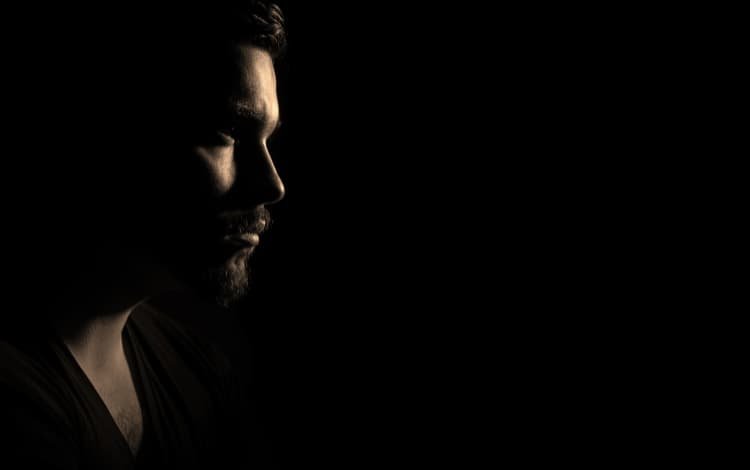Navigating Anxiety About Your Gay Sexuality
Uncover the hidden layers of anxiety about your gay sexuality as Gino, a gay therapist, unravels practical, empowering strategies to overcome these emotional challenges. Read on to learn more about this anxiety and to equip yourself with the tools to navigate the complex landscape of your identity with confidence and grace.
I believe that the struggle we face with sexuality is a testament to the diversity of human existence. They shape us, make us question, and ultimately lead us to a deeper understanding of ourselves.
If you're experiencing anxiety about your sexuality as a cisgender gay man, I want to throw you a lifeline - you're not alone.
Sexuality and anxiety can feel like a relentless storm at times. It can toss you about with intrusive thoughts, uncertainty, confusion, and fear, like the wind in a tempest.
It's not easy and can be messy at times.
But it's part of the journey.
In this article, I delve deeper into "gay anxiety," a phrase that encapsulates the fear and apprehension wrapped around one's sexual orientation.
I will also provide practical strategies to help you ride these waves of anxiety rather than being consumed by them.
But before we get started, remember:
Self-discovery is a marathon, not a sprint.
Struggling with your sexuality isn't a sign of a mental health condition.
There is absolutely nothing wrong with you.
It's completely okay to take your time, to feel lost, and to have questions.
Ready to plunge into this together? Let's dive in.
Is it normal to have anxiety about your sexuality?
As a gay man, you should know that questioning your sexuality is a common experience many LGBTQ+ people share. Getting to know yourself can be especially difficult because society has a lot of heteronormative assumptions and expectations.
Reasons for questioning why you are gay
You may question why you are gay for various reasons.
As a therapist who works with cisgender gay men, I've seen that internalized homophobia and a lack of positive role models or representation are the most common reasons for this struggle.
On top of this, understanding our sexual orientation can sometimes feel like trying to catch a cloud – it's ever-changing, complex, and deeply personal.
Indeed, there is no one answer as to why you are gay, and this can be difficult to accept when society pressures us to have all the answers.
Focusing on self-understanding and preferences
What's more important is to focus on increasing your understanding of yourself, including your likes and dislikes, feelings, and experiences. This also includes exploring your sexual preferences (i.e., do you enjoy oral sex, are you a top or bottom, or are you versatile?).
Contrary to mainstream belief, not all gay people enjoy anal sex (giving or receiving), and some healthy gay sexual relationships exist without the need for intercourse - often referred to as being a “side.”
Seeking support and positive role models
As you engage in self-discovery, it can also help to seek out positive queer role models who can provide you with support and a safe space to talk through any questions or confusion. No matter what your sexual orientation is, these role models can relate to your experiences and validate how you feel.
Is being gay a choice?
No, it is not.
Being gay isn't a choice; it's a core part of your essence, as integral to you as the rhythm of your heartbeat.
“Sexual orientation, including being gay, is a natural and inherent part of a person’s identity determined by biological, psychological, and environmental factors.”
Trying to figure out how to stop being gay will only lead you to a dark, emotional place.
Many studies back this.
The journal Science, for instance, measured the size of specific brain regions and found that heterosexual women and gay men have similar brain structures.
Counter to this, heterosexual or straight men had brain structures more similar to lesbians. They also found evidence that gay people have specific genetic markers compared to heterosexual men.
Why am I anxious and struggling with my sexuality?
There are many reasons why you experience a struggle with your sexuality.
Some of these reasons may include the following:
Societal pressure: Homophobia and societal standards that dictate that being heterosexual or straight is the norm may have led you to have obsessive thoughts that question your sexual desire.
Internalized homophobia: You may have internalized negative societal messages about same-sex sexual orientations, which can cause you to question your sexuality and avoid sex experiences or fear sexual intercourse, for instance.
Confusion and uncertainty: It may have been difficult to accept being gay, especially if you have not had many positive role models or experiences.
Past trauma: You may have experienced sexual trauma, assault, or abuse related to your same-sex sexual attraction, affecting your ability to accept and understand your sexuality.
Religious or cultural beliefs: Your religious or cultural beliefs - past and present - may conflict with your sexual desire, leading you to question your sexual attraction and sexual relationships.
It's important to note that, like all gay persons, your experience of sexual orientation is unique; therefore, no one-size-fits-all answer can be given.
Coming to terms with your orientation is complex and multifaceted.
How tо feel less аnxiоus аbout bеing gаy?
You can do many things to feel less anxious about your gay orientation.
One of the essential things is identifying what makes you anxious. Once you know the cause, many techniques can help you explore your sexual activity.
These include:
Writing in a journal to unpack your inner feelings related to your anxiety.
Talking with someone who's been through a similar experience.
Practicing yoga activates your parasympathetic nervous system and helps you feel more relaxed.
Meditating to help increase your self-awareness and reduce negative emotions.
At first, accepting yourself may feel challenging, but it becomes easier once you start.
You will eventually see that everyone, gay or straight, has unique qualities and specific traits, and no one is perfect. You, too, don't have to be perfect.
If you still struggle after some time, find professional help from a counselor.
Who to talk to about your sexuality?
If you struggle with "gay anxiety" or anxiety related to your sexuality, you must talk to someone.
Find supportive role models, get to know and understand yourself, and use online resources to help you learn to accept your unique sexual identity.
Another helpful resource is to speak with a gay therapist or counselor. You will find that a therapist with expertise in this area can offer advice on working through your challenges.
Remember to be kind to yourself and recognize that it is okay not to have all the answers.
How therapy can help you explore your anxiety about your gay sexuality:
Explore the root causes of anxiety
Provide a safe, judgment-free space
Develop resilience-building tools
Foster healthier self and interpersonal relationships
Cultivate a life of acceptance and confidence over fear






